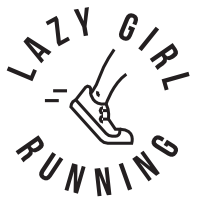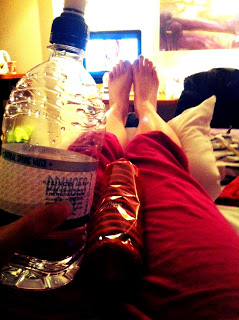However you plan to recover, make a plan! Whether it’s the simple ‘one day’s rest for every mile raced’ equation, or a ‘reversed taper’, put some thought into your recovery and take it seriously.
It’s not just me that believes rest is best – ultra runner Scott Jurek takes four to six weeks of complete rest from running at the end of a season. That’s no running at all for four to six weeks.
He says: “During my 17 years of ultramarathon racing, taking post-season time off is a big reason why I’ve remained so consistent year after year.” Scott’s tips for ‘hibernating’ include not worrying about putting on a few pounds while you’re not running.
A lot of people worry that taking time off after their marathon to rest will lead to losing some of the hard earned fitness that they’ve built up during their training. But according to coach Greg McMillan, they needn’t worry.
Greg writes: “The good news is that most research indicates that as long as there is an aerobic stimulus once every two to three days, aerobic fitness will be maintained.” If you really are itching to get out there, he’s put together a recovery training plan.
Top US distance runner and 2:07 marathon runner Dathan Ritzenhein takes recovery seriously. He writes: “You may have crossed the finish line, but that only means the race to nurse your tired body and aching muscles back to health has begun.” Dathan recommends letting your body dictate your recovery. His tips include keeping moving and jumping in an ice bath.
So now there’s no excuse not to kick back, chill out and recover from your race.







Interesting stuff as like you say – everyone has a different approach. Have you tried compression socks? – would be interested to know your thoughts on those.
I find a good recovery plan is:
Week 1: No running
Week 2: 50% of usual mileage (or do some cycling that week instead) Week 3: 50 – 75% of normal mileage
Week 4: Back to normal
But that’s just what seems to work for me.
I love the hibernation idea (especially around xmas) I think Chrissie Wellington does that too.
Sounds like you favour the ‘reversed taper’ method.
I have used compression socks but mainly during a race and not after. i like to release my feet as soon as possible after I cross the finish line.
Laura.
I am now in the midst of my recovery period. My coach advised t take 10 days off, and then start back slow. I think Hal Higdon also has a really good post-marathon recovery plan.
Last year, after the London marathon, I came back too quickly and pulled a chest muscle. Lesson learned.
Great post, Laura.